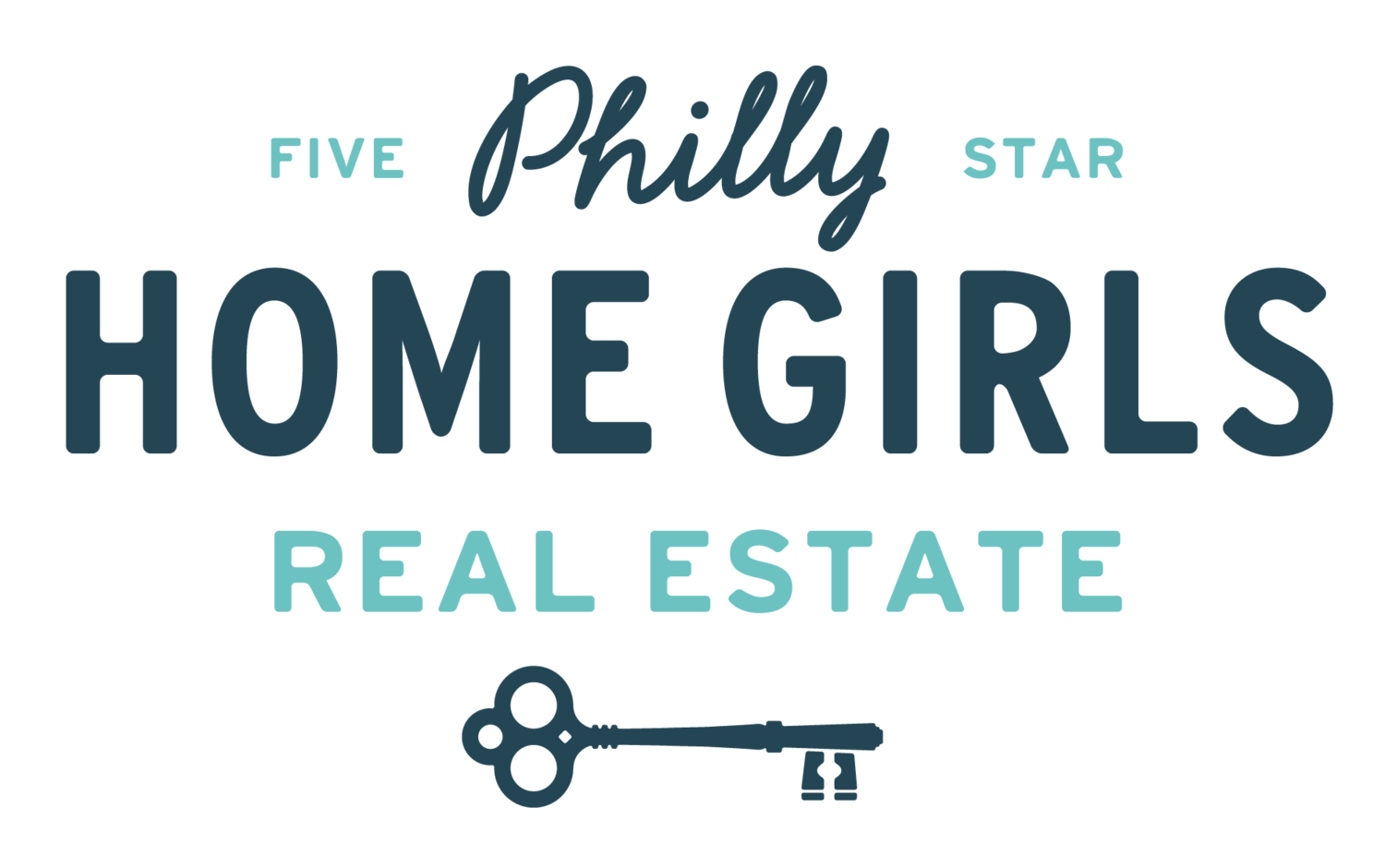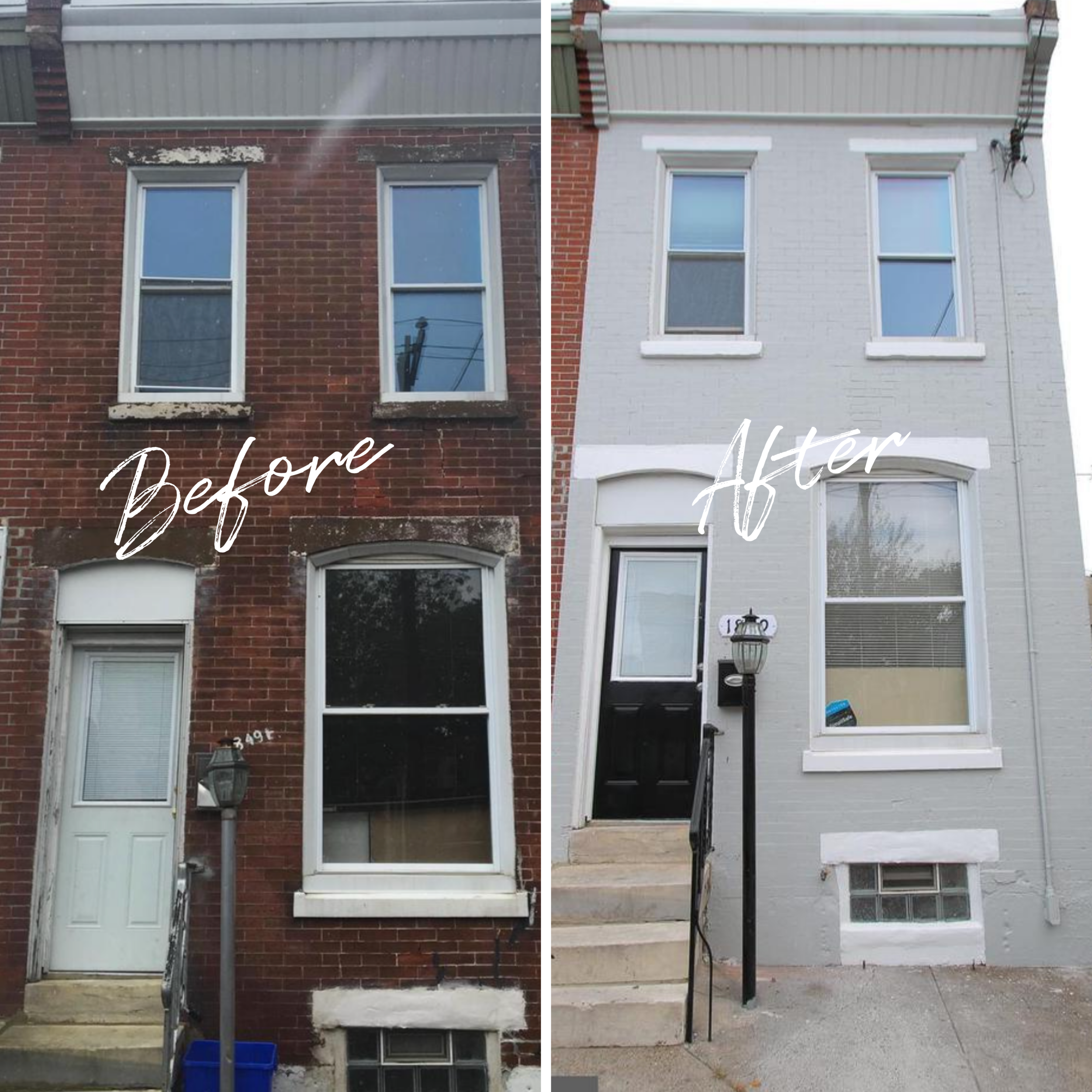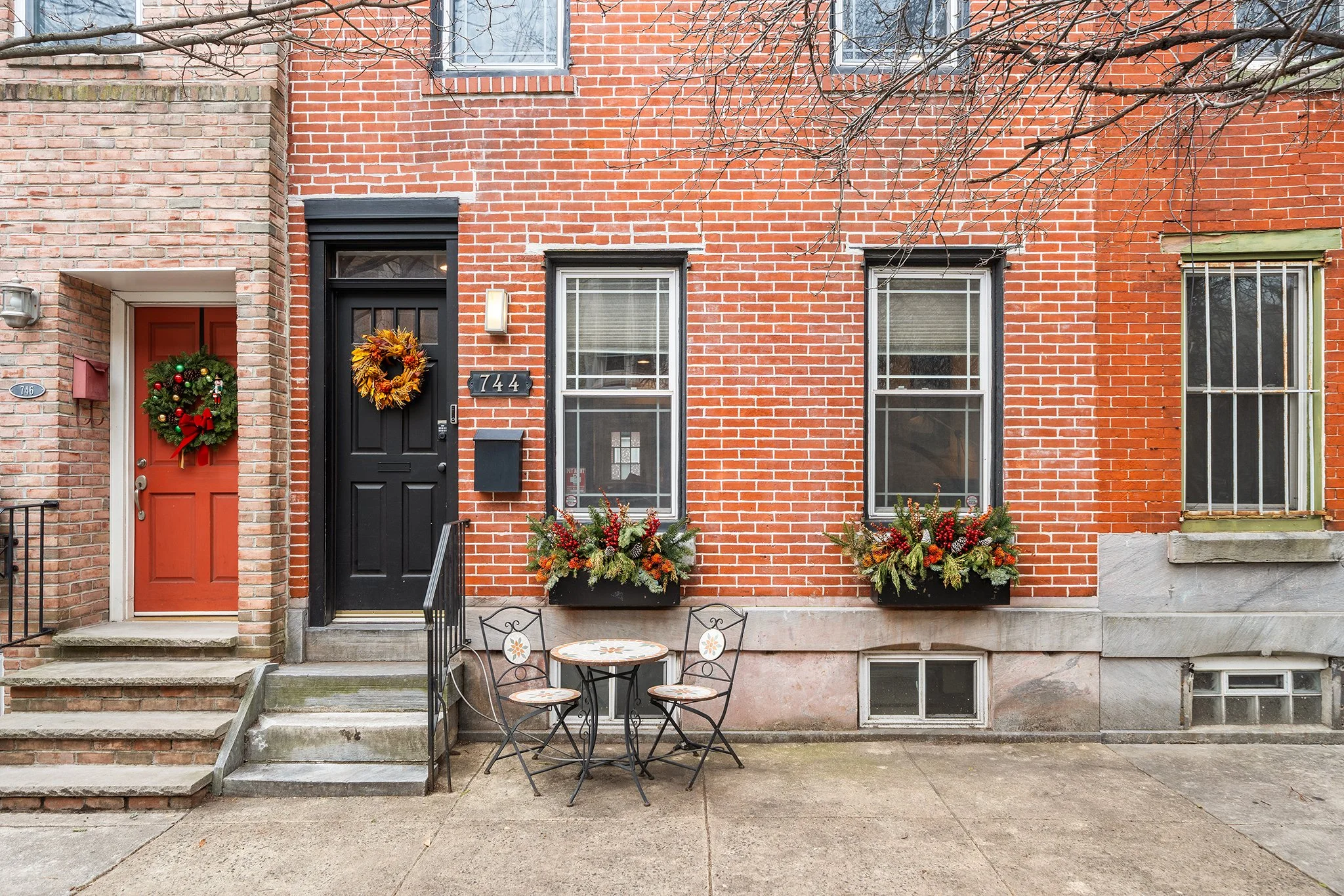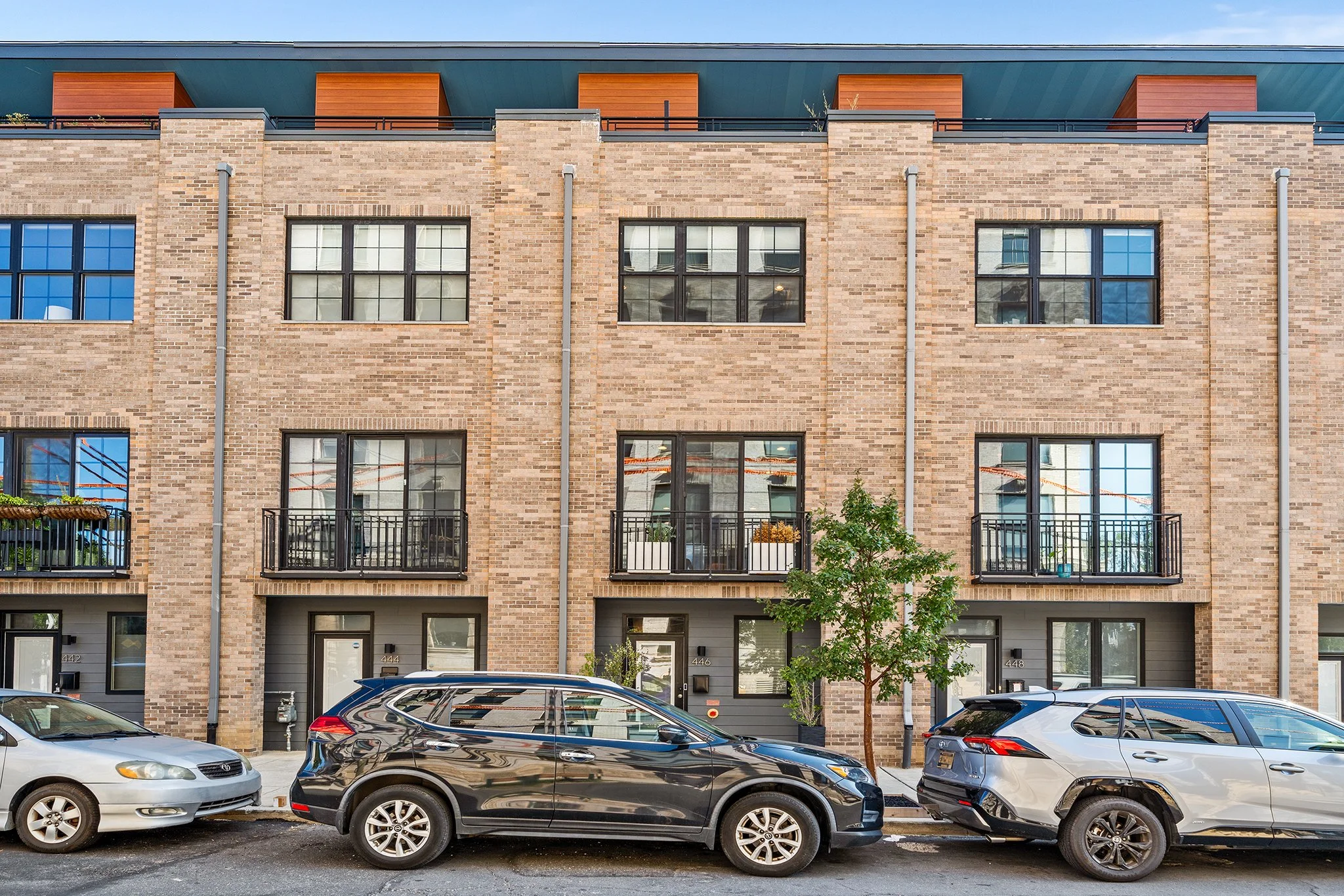We love talking with new investors. They share our excitement for chatting, real estate and speculating on trends about rents, interest rates, and neighborhood development projects. To us, this is hot gossip. That initial excitement is legit because the Philly rental market is solid, stable, and constantly growing.
The reality of dipping new toes into the investment market can be challenging and frustrating. New investors entering today's market can expect limited supply and off-the-charts demand, sticker shock at the steadily rising prices, poor cosmetic and physical conditions, and acquiring long term tenants paying below market rents. So, why now? Because rates for investors are at record-breaking historic lows, and values are predicted to continue rising.
Is the 1% Rule of investing possible in Philly?
So when a new investor says: “I want to generate passive income and find a cash-flowing, turnkey property that follows the 1% Rule.” We say, with a little adjustment of that expectation, I can turnkey that dream into real estate.
Traditionally, investors would use a Capitalization Rate or the 1% Rule to determine a good buy. Because Philadelphia has affordable rents, you can forget Google’s recommendation that anything other than a 10 cap will do, and adjust that 1% formula down a bit. The 1% Rule says that an investment property is a good deal if the total gross monthly rent is 1% of the purchase price; that’s a $200,000 property earning $2000/mo in gross rent. In Philly, that’s nearly impossible and with investors getting 2.875% interest rates, definitely not necessary.
Do I have to choose between appreciation and cash flow?
1867 Blair Street | Bought in 2019 for $230,000
Estimated Mortgage $1,150 | Rent $1,700
With today's interest rates, you can’t overspend because your principal is going down so rapidly. Even if the bubble bursts on appreciation, you’re likely to pay your mortgage down more than your costs. In Philly, closing costs of selling is 8%, and 3-5% for acquisition. A neat trick is to let us check your amortization schedule and figure out when you’ll have paid off 13% of your loan balance. By that time your outsale is cash positive. At 50% loan to value ratio, you’re ready to reamortize your loan and really kick up your cash flow.
Is finding a multi-family really the kiss of death for a real estate search?
The great majority of investors our team meets are seeking a conventional 2-4 apartment multi-unit rental property or a single-family home to hold and rent. In our opinion, single-family homes in Philadelphia represent the best potential for success.
Legal multi-family zoning is rare, and when you can find it, it's often beat up to within an inch of its life. Also, outsale is heavily weighted on the cost approach which is based on the income. If you have good tenants and because you don’t raise their rents, and you don’t want to evict them when you sell, plan to sell lower than you would if your property was vacant and renovated. Renovating a 2-4 unit building is nobody’s idea of a good time.
We just recently sold a very rare and expensive duplex listing in Bella Vista for over asking price. It was in excellent condition, with fantastic maintenance and rental history. You couldn’t get a more perfect turnkey property. The rents on both units total $3,200. After the mortgage is paid, the insurance and other costs such as water, garbage removal, etc are tallied, this property will just be breaking even. However, given the location and condition, the new owners are hoping that time will build equity into the home, and in a few years make a profit as rents in the area increase.
Sweat Equity is a Good Place to Start
1849 E. Harold Street | Bought in 2019 for $115,000
Estimated Mortgage $860 | Rent $1,200
The most amount of wealth you’re likely going to make on an investment property may be in your starter home. When you buy a property undervalue and bring it up to a new value, that’s equity that can help finance more investment properties. For example, you may opt for a cash-out refinance or renovate and resell (flip) the property. Both options will aid in continuing your investments in real estate.
Savvy investors will target low-cost improvements that bring a little more rent and a little more value. This includes cosmetic stuff like deep clean, patch and paint, window boxes for curb appeal, painting kitchen cabinets, adding shelving, updating bathroom vanity, minor landscaping on back patios. If you have vision, you don’t always need to tear a home down to its studs to rehab it and improve the value. Upcycling is a profitable trend if you have the knack.
Experienced investors will only start investing in capital improvements once they know the property will bring a good rent. Capital improvements include replacing windows, updating electrical, foundation repairs and other costly repairs.
As an investor, your ability to handle issues and improve a property is a Marvel-Level Super Skill
It’s not just physical issues like peeling paint, dirty carpet, or leaky pipes that cause properties to sell at deep discounts. Title issues, liens, holdover tenants or tenants paying very low rents all effect value.
Our client bought an under-valued single-family home in Fishtown in 2019. The condition was rough; dirty mattresses on every floor, cracked back patio, and unpaid utility bills. After a few months of cosmetic work, emails and calls to PGW and the Water Department, he placed a tenant and pulled off a very nice cash-out refinance. That action alone increased the value by over $75,000. If the property in question had been clean and turnkey, it would not have been affordable for his investment portfolio.
What’s the Secret Recipe for Success?
Other than profit, there is no hard and fast rule when it comes to real estate investment. Every buyer comes to the game with their own specific rules, goals and tolerance to qualify a successful investment.
This is all the foundation of the BRRRR Method, a strategy made popular through the website and podcast Bigger Pockets. That’s BUY, REHAB, RENT, REFINANCE, REPEAT. Bigger Pockets is a national forum so use caution with some of the pricing strategies and rental expectations.
Christian Fegel, The Philly Home Guy, also recommends a video by podcast host Brandon Turner called The Four-Square Method for Calculating Numbers on a Rental Property. How much are you budgeting for capital improvements? Vacancy? Routine maintenance?
2026 Waterloo Street | Bought in 2018 for $115,000
Estimated Mortgage $800 | Rent $1,400
Assembling your squad
An ideal starting point for any investor is to get your team together. Most investors start the process by talking to a real estate agent or working alongside a trusted advisor (these can be one in the same). These guides can help assemble a team of competent and honest people to help you.
Start with a Realtor. No bias here, but anyone even considering real estate investing needs to interview a realtor right now. An investment property search is going to be a much different experience from when you bought your own home. Many properties will be tenant occupied and difficult to access. Occasionally your realtor will open a door with a power drill instead of a key. Most importantly- good deals sell in a flash so you’ll need a realtor with a flexible schedule who can properly serve your needs. You’ll need a fearless agent with whom you have full confidence and easy communication.You’re the boss, but expect your agent to write offers, schedule showings, advise on pricing in Philly’s micro-markets, negotiate deals, refer you to trusted contractors and most importantly help you search for listings including off-market properties.
Find your sage. “If I had to do it over again, I would have done it like this…”. Every successful investor I know has sought advice from a mentor. There’s no better way to learn than from the successes and failures of another real estate investor. Every landlord has a tenant horror story, every investor has had struggles with a contractor.
Start a relationship with a lender. This is absolutely one of the home run hitters on your team. As your real estate portfolio grows (and you start cash-out-refinancing) you’ll want a relationship with a lender who knows the names of your kids.
We’re here to help
With the right team, some elbow grease, and clearly defined expectations and goals, real estate still remains one of the smartest investments you can make. We love to work with investors. Don’t hesitate to join one of our famous workshops, or give us a call, text or email and we can talk through the steps of becoming a landlord in or around this fine city of Philadelphia.















What do you do when you’ve inherited a house? How do you sell a home from a loved one’s estate? What will happen with your home after you pass away? These are common questions we get in this industry. To help answer them, we sat down with Steven Zelinger, an attorney that specializes in estate planning and probate.